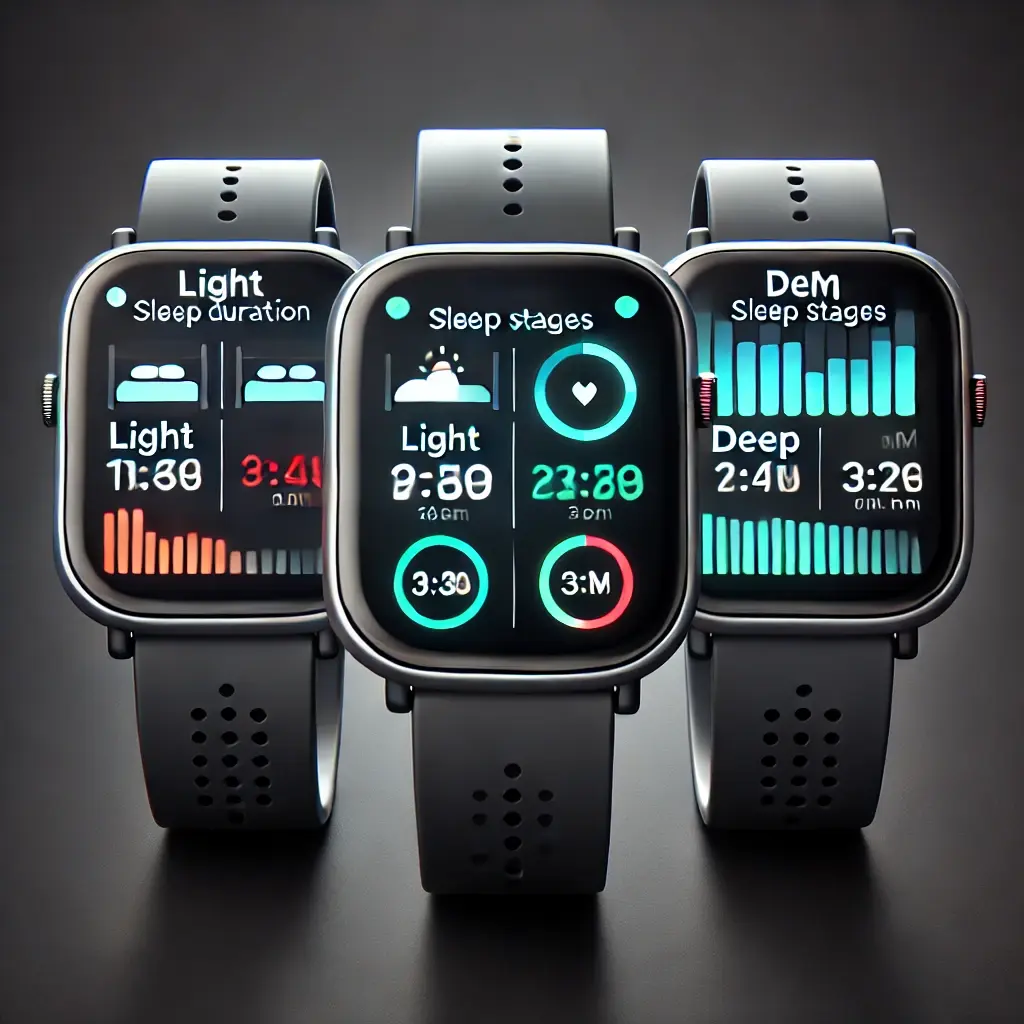How do smartwatches track sleep?

How Do Smartwatches Track Sleep?
Sleep tracking has become an essential feature in modern smartwatches. These devices help users monitor their sleep patterns, detect disturbances, and provide insights for better sleep quality. But how do smartwatches track sleep? Let's dive into the technology behind it.

1. Motion Sensors (Accelerometer & Gyroscope)
- Smartwatches use accelerometers and gyroscopes to detect body movement.
- If the watch detects minimal movement for an extended period, it assumes you are asleep.
- Frequent movement is linked to light sleep, while stillness suggests deep sleep.
2. Heart Rate Monitoring
- Optical heart rate sensors track variations in your heart rate (HRV).
- During different sleep stages, heart rate fluctuates:
- Light sleep: Heart rate slightly drops.
- Deep sleep: Heart rate is at its lowest.
- REM sleep: Heart rate becomes irregular.
3. Blood Oxygen (SpO2) Monitoring
- Some smartwatches measure blood oxygen levels during sleep.
- Low SpO2 levels may indicate breathing problems like sleep apnea.
4. Sleep Stage Detection
- Using AI and algorithms, smartwatches categorize sleep into:
- Light Sleep: When you are in the early stages of sleep.
- Deep Sleep: The most restorative phase.
- REM Sleep: The stage when dreaming occurs.
- Sleep tracking data helps users analyze sleep quality and make improvements.
5. Skin Temperature Sensors (Advanced Feature)
- Some premium smartwatches track body temperature variations.
- Sudden temperature changes may indicate restlessness or fever.
6. Sound & Snore Detection (Available in Some Models)
- Watches with microphones can detect snoring and ambient noise.
- This helps identify sleep disturbances.
7. Smart Alarms & Sleep Coaching
- Some smartwatches wake you up during light sleep for a more natural wake-up experience.
- AI-powered sleep coaching suggests improvements based on your sleep history.
8. Limitations of Smartwatch Sleep Tracking
- Smartwatches may not always be 100% accurate.
- Factors like loose-fitting wear, device placement, and external disturbances can affect readings.
Conclusion
Smartwatches use a combination of motion tracking, heart rate monitoring, and AI-powered analysis to track sleep. By understanding your sleep patterns, you can make necessary lifestyle changes to improve your rest and overall health.






